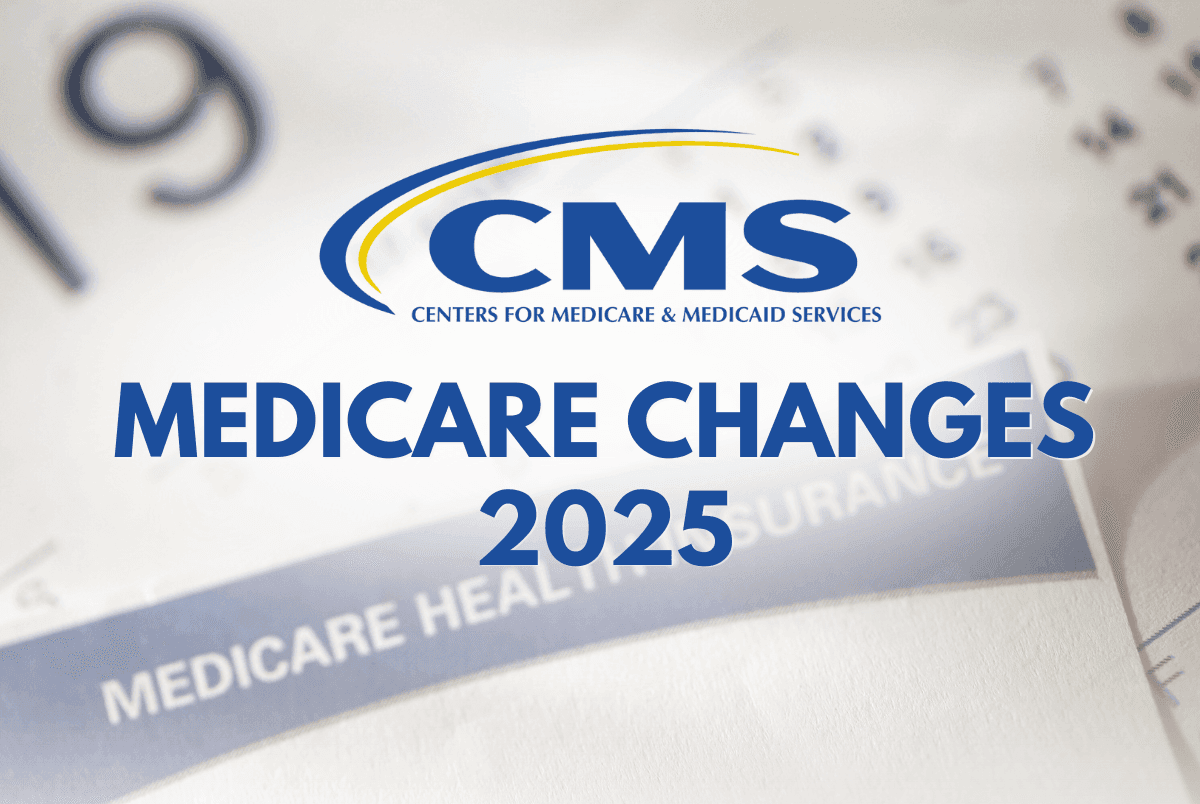Find out if you qualify
Medicare beneficiaries who stay vigilant in preventing strokes might already know about the WATCHMAN procedure. What you need to know is that Medicare offers coverage for it. You do have to meet certain criteria, though. Keep reading to find out if you might qualify.
Speak with a Medicare Advocate
What is the WATCHMAN procedure?
The WATCHMAN procedure is a non-surgical option for people with atrial fibrillation, or AFib. It’s an FDA-approved device that’s placed within the left atrial appendage (LAA) to close it off and keep blood clots from forming there. Once it's in place, the WATCHMAN device helps reduce the risk of stroke in people with AFib.
Who is eligible for Medicare coverage of the WATCHMAN procedure?
In order for Medicare to cover the WATCHMAN procedure, you must meet certain criteria. Medicare will cover the WATCHMAN procedure for those who meet the following:
Increased risk for stroke
Not being able to take long-term blood thinning medications
You must also have a referral from your doctor and be seen by a cardiologist or electrophysiologist (EP) who specializes in treating atrial fibrillation.
If you are approved, Medicare will cover all of the device-related costs associated with the WATCHMAN procedure. This includes the doctor’s office visit and hospital stay for the procedure, which will be covered Part A. Part B will cover any follow-up care related to the device placement.
You will be responsible for the Part A deductible, and up to 20% of the Medicare-approved amount for Part B. If you want to decrease your out-of-pocket costs, you should enroll in Medicare Supplement Plan G
How to find a doctor who performs the WATCHMAN procedure
If you are interested in the WATCHMAN procedure, it’s important to find a doctor who specializes in treating atrial fibrillation. Medicare providers can help you locate an EP in your area that has experience with the WATCHMAN procedure.
When reviewing doctors and making appointments, make sure to bring up any questions or concerns you may have about the procedure. It’s also important to confirm that the doctor accepts Medicare before moving forward with any kind of treatment.
What are the risks and benefits of having the WATCHMAN procedure done?
The WATCHMAN procedure is generally safe and effective, however there are some potential risks associated with it. These include bleeding, stroke or device-related complications such as infection or damage to the implant site.
The benefits of having the procedure done include a reduced risk for stroke compared to those who do not receive treatment, as well as a decreased need for long-term blood thinning medications.
How to prepare for the WATCHMAN procedure
Prior to your WATCHMAN procedure, you’ll need to meet with your doctor and discuss any allergies or medical conditions that may be a risk factor in the procedure. You should also inform any other doctors who are treating you about the procedure so they can monitor your health accordingly. Additionally, it’s important to talk to your doctor about any medications you are currently taking and ask about how to prepare for the procedure, including when to stop taking certain medications. You may also need to fast before the WATCHMAN procedure, so make sure to follow your doctor’s instructions closely.
What happens after the WATCHMAN procedure is completed?
After the procedure, you will likely be monitored in a hospital for at least 24 hours. This is to make sure that you do not experience any complications from the procedure or device placement. You may need to stay on blood thinners for several months following your WATCHMAN procedure and then your physician can help determine if it’s safe to stop taking them. Additionally, you should follow-up with your doctor regularly to make sure that the device is functioning properly and that your body is healing correctly.
Takeaway
The WATCHMAN procedure can be an effective way for people with atrial fibrillation to reduce their risk of stroke. Knowing if you qualify for Medicare coverage will help make this decision easier, so it’s important to confirm that you meet the criteria and find a doctor who specializes in treating atrial fibrillation. Before undergoing the procedure, remember to talk to your doctor to ensure this is the right choice for you. This content is for informational purposes only. For all your Medicare questions, we are here for you at Fair Square Medicare. Call today to speak with an expert.
Recommended Articles

Does Medicare Require a Referral for Audiology Exams?
Nov 22, 2022

How to Become a Medicare Agent
Aug 30, 2023

Does Medicare Cover Piqray?
Dec 2, 2022

Can Medicare Help with the Cost of Tyrvaya?
Jan 12, 2023

Does Medicare Cover Chiropractic Visits?
Dec 22, 2022

Why Is Medicare So Confusing?
Apr 19, 2023

Can Medicare Advantage Plans Deny Coverage for Pre-Existing Conditions?
Mar 28, 2023

Does Medicare Cover Qutenza?
Jan 13, 2023

How is Medicare Changing in 2025?
Dec 21, 2022

Does Medicare Cover Xiafaxan?
Jan 19, 2023

Should You Work With A Remote Medicare Agent?
Sep 20, 2023

Does Retiring at Age 62 Make Me Eligible for Medicare?
Jun 16, 2022

Does Medicare Pay for Varicose Vein Treatment?
Nov 18, 2022

Gap Health Insurance: The Secret Sidekick to Your High-Deductible Plan
Jul 14, 2025

The Easiest Call You'll Ever Make
Jun 28, 2023

Top 10 Physical Therapy Clinics in San Diego
Nov 18, 2022

What to Do When Your Doctor Doesn't Take Medicare
Feb 24, 2023

Plan G vs. Plan N
Jan 28, 2022
More of our articles
13 Best Ways for Seniors to Stay Active in Columbus
13 Best Ways for Seniors to Stay Active in Jacksonville
13 Best Ways for Seniors to Stay Active in Philadelphia
14 Best Ways for Seniors to Stay Active in Seattle
14 Best Ways to Stay Active in Charlotte
2024 Fair Square Client Retention and Satisfaction Report
2024 Fair Square NPS Report
Are Medicare Advantage Plans Bad?
Do You Need Books on Medicare?
Does Medicare Cover a Spinal Cord Stimulator?
Does Medicare Cover Bladder Sling Surgery?
Does Medicare Cover Compounded Medications?
Does Medicare cover Deviated Septum Surgery?
Does Medicare Cover Flu Shots?
Does Medicare Cover Fosamax?
Does Medicare Cover Hoarding Cleanup?
Does Medicare cover Hyoscyamine?
Does Medicare Cover Incontinence Supplies?
Does Medicare Cover Jakafi?
Does Medicare Cover Kidney Stone Removal?
Does Medicare Cover Linx Surgery?
Does Medicare Cover LVAD Surgery?
Does Medicare Cover Macular Degeneration?
Does Medicare Cover Nuedexta?
Does Medicare Cover Ofev?
Does Medicare Cover Orthodontic Care?
Does Medicare Cover Ozempic?
Does Medicare Cover RSV Vaccines?
Does Medicare Cover Service Animals?
Does Medicare Cover SIBO Testing?
Does Medicare Cover Stair Lifts?
Does Medicare Cover Wart Removal?
Does Medicare Cover Zilretta?
Does Medicare Pay for Bunion Surgery?
Everything About Your Medicare Card + Medicare Number
Explaining IRMAA on Medicare
Explaining the Different Enrollment Periods for Medicare
Finding the Best Dental Plans for Seniors
Finding the Best Vision Plans for Seniors
Health Savings Accounts (HSAs) and Medicare
How Are Medicare Star Ratings Determined?
How Can I Get a Replacement Medicare Card?
How Do I Sign up for Medicare? A Simple How-To Guide For You
How Do Medicare Agents Get Paid?
How Does Medicare Cover Colonoscopies?
How Much Does a Pacemaker Cost with Medicare?
How Much Does Medicare Cost?
How Much Does Xeljanz Cost with Medicare?
How Often Can I Change Medicare Plans?
How to Apply for Medicare?
How to Compare Medigap Plans in 2025
How to Deduct Medicare Expenses from Your Taxes
How Your Employer Insurance and Medicare Work Together
Is Displacement Affecting Your Medicare Coverage?
Is Fair Square Medicare Legitimate?
Is HIFU Covered by Medicare?
Medicare & Ozempic
Medicare Advantage MSA Plans
Medicare Advantage Plans for Disabled People Under 65
Medicare Guaranteed Issue Rights by State
Medicare Supplement Plans for Low-Income Seniors
Medigap Plan N vs. Plan G — Which One Fits You in 2025?
Medigap vs. Medicare Advantage
The Fair Square Bulletin: October 2023
What If I Don't Like My Plan?
What Is a Medicare Supplement SELECT Plan?
What Is Medical Underwriting for Medigap?
What is the 8-Minute Rule on Medicare?
What You Need to Know About Creditable Coverage
What's the Difference Between HMO and PPO Plans?
Which Medigap Policies Provide Coverage for Long-Term Care?
Will Medicare Cover it?
Get the Fair Square Bulletin
Medicare savings tips, helpful guides, and more.
Virgil Insurance Agency, LLC (DBA Fair Square Medicare) and www.fairsquaremedicare.com are privately owned and operated by Help Button Inc. Medicare supplement insurance plans are not connected with or endorsed by the U.S. government or the federal Medicare program. This is a solicitation of insurance. A licensed agent/producer may contact you. Medicare Supplement insurance is available to those age 65 and older enrolled in Medicare Parts A and B and, in some states, to those under age 65 eligible for Medicare due to disability or End-Stage Renal disease. Virgil Insurance Agency is a licensed and certified representative of Medicare Advantage HMO, HMO SNP, PPO, PPO SNP and PFFS organizations and stand-alone PDP prescription drug plans. Each of the organizations we represent has a Medicare contract. Enrollment in any plan depends on contract renewal. The plans we represent do not discriminate on the basis of race, color, national origin, age, disability, or sex. Plan availability varies by region and state. For a complete list of available plans please contact 1-800-MEDICARE (TTY users should call 1-877-486-2048), 24 hours a day/7 days a week or consult www.medicare.gov. © 2026 Help Button Inc
We do not offer every plan available in your area. Any information we provide is limited to those plans we do offer in your area. Please contact Medicare.gov or 1-800-MEDICARE to get information on all of your options.
MULTIPLAN_FairSquareMedicare_01062022_M
Fair Square Medicare


